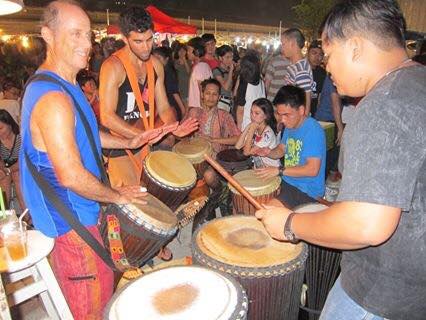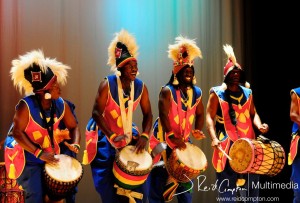The beginners, *(all of our) need to solo in traditional drumming situations.
Most people getting involved with hand drums such as congas and djembes get inspired by seeing a video, being at a drum circle or a performance where they have seen someone soloing. Something clicks. Something calls us. We are moved in a very positive way. And I salute this. The drum is healing. We want to play it, we want to “do our own thing”. It feels personal. It is personal. At once for anyone that touches a drum there is a connection. I would venture to say a connection to spirit.

It intrigues and inspires us all. The need to create. To improv, To improvise. It is a valid feeling. Its great we all have it.
What most people don’t understand, the hardest concept for new drummers (and some of us old heads as well) to grasp is that in order to solo, to improv you need to have a strong foundation first. We call this music or “drumming fundamentals”.
Many of us have no clue at first that drumming comes from an age old proud and very deep history in West Africa. All traditional hand drumming in West Africa is part of a formula involving unity.
West African drumming involves playing pieces or arrangements that can be very highly orchestrated and can and do serve multi purposes in the communities where these drums are played. The drums are integrated and inseperable form dance, song, spirit and intention. The word Djembe in Bombara comes from the term “Djembe Bara” or “unity of the drum” according to master drummer Abdoulye Diakate.
West Africa is where your djembe drum was born and where it comes from. Out of this environment of community spirit. Of purpose and sharing. Not from ego.
The djembe is not about soloing. It is about community and sharing. And the first thing we need to learn about to further our understanding of the djembe is djembe fundamentals.
The most complicated rhythms, the most complicated parts, when broken down, when slowed down..are made up very simple parts.
The simple parts when placed on the beat, off the beat and around the beat are part of the fundamentals and math in drumming. everything you play somehow relates to what we drummers like to call, “the one”. The down beat. The first beat of the rhythm. Where the pulse starts. Where you would naturally dance step or clap.
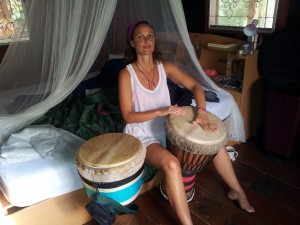
It is the understanding of where these parts go, how to use them, where to use them and most importantly the feel that gives us the magic in drumming. But it does not come at first, this comes later. At first we learn how to play with the building blocks.

When you are building a house you lay down the cement , you put up framework and the last thing you do is decorate.
Soloing is the finish work…the beautiful decoration. I repeat, is the finish work. Yes it is important. Yes it can lead the dancer or group.
But to be an effective soloist you need to have a strong foundation musically and you need to know the fundamentals of the music system you are trying to solo in. You must crawl, go up on your knees, stand up and then run. If you miss any of the steps, it will show in your playing and in your life.
For example. If you are playing west african djembe music, you need to have proper slap, tone and bass. You need to make the sounds on the drum correctly before you work on your solos. Not only that, but you need to know the basic parts for the rhythms you are soloing to.

You need to know the accompaniment parts and the dunnun parts. You also need to understand how the different parts/rhythms fit together. The fundamentals and the math.
What are the relationships between all the parts? The parts in an individual west african rhythm composition are like a family. There are grand parents, parents, brothers,sisters, cousins.
You have to get to know them all. You need to live with them. You need to be friends with them.
Soloing in traditional djembe based music is not merely playing on top of a rhythm arrangement. That is just spewing on everything. A great solo weaves in and out of the rhythm.
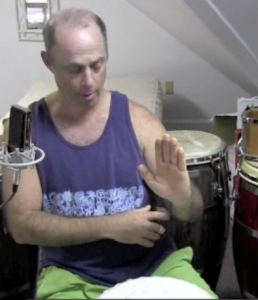
To do this, to weave in and out, to lead the group you need to now the rhythm you are playing to. You need to understand the math, how it all fits together.
How can you lead if you do not know how to follow?
The accompaniment parts and the dun nun parts are your meditation. They are your mantra.
They repeat. Playing accompaniment and dunun humbles you. You have to be present. If you are present, if you are there with out your ego then you will be able to see, feel, hear and learn the whole piece.
There is no way around learning the basics. If you try to learn a complicated solo chain of events, phrases linked together..sure you can memorize it and put it on top of something. But it will never really lock. If you don’t have your basics together then it shows. There is no fooling or tricking anyone. There are no short cuts. Do your homework. Practice the basics. Learn about the pulse, where “the one” is. The starting beat. The pace we all refer to. What the djembe call leads into. The one.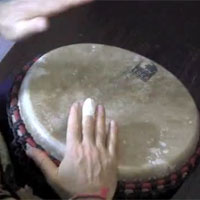
The solo techniques are not the basics, they are instead the last part of the puzzle. With out knowing the basics, how the rhythm arrangements lock together, the chemistry that is created by making traditional rhythm arrangements fluid.. you will never be able to solo properly. And with out technique, with out making the proper sounds you will never be able to solo or speak correctly on the drum.
If you have indeed learned all the basics and understand how your parts fit with the other players, fit with, around and relate to the pulse then soloing becomes very easy.

If you are practicing solo techniques and they are not working it is because of a lack of understanding the relationships of parts to other parts which can only be learned a step at a time by learning traditional hand patterns for the individual pieces.
I suggest letting go of the need to solo, the ego, the need to express, the need to improv, the need to be validated… until you have learned to play your drum correctly, until you have learned the full arrangement of the piece you are playing with in.
When I say, “the beginners need to solo” I speak of all of us, because we are all beginners when it comes to traditional west african djembe music.

If you can grasp this, and accept this it willmake your journey learning to play djembe much easier. We are all students, we are all beginners!
Master playing all the different parts of an arrangement. While you are holding parts listen to the other players. See how and where you fit in , how the rhythms lock together. If you do this, you will be able to solo much easier and have more fun as well.

